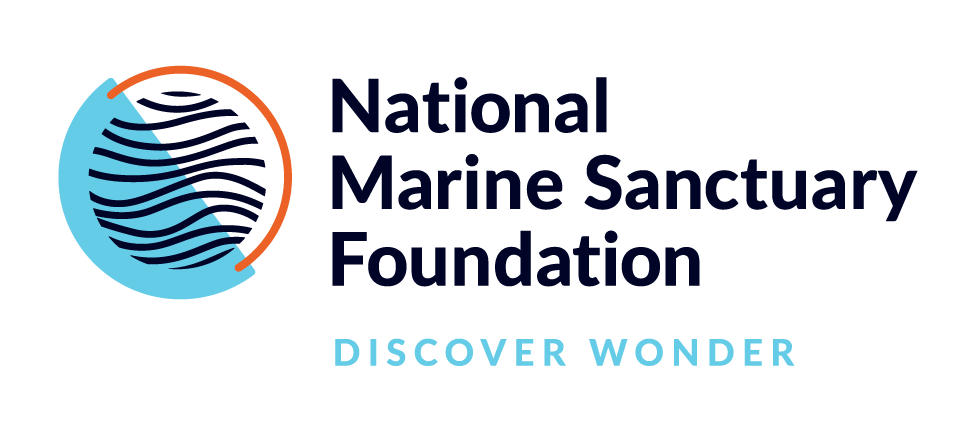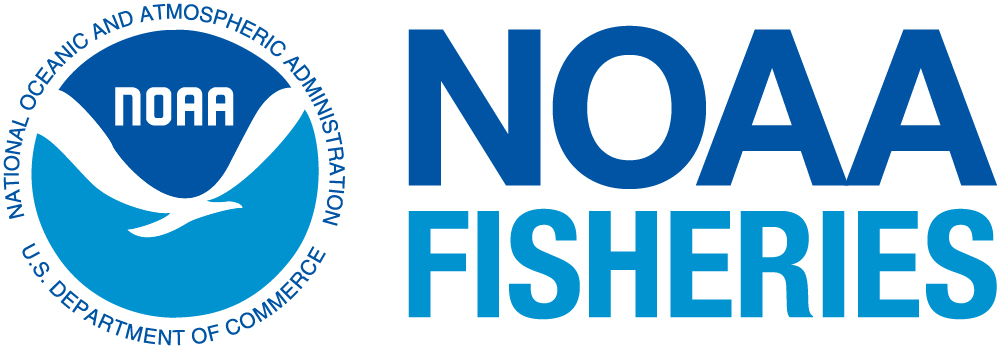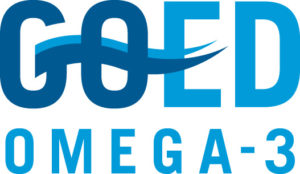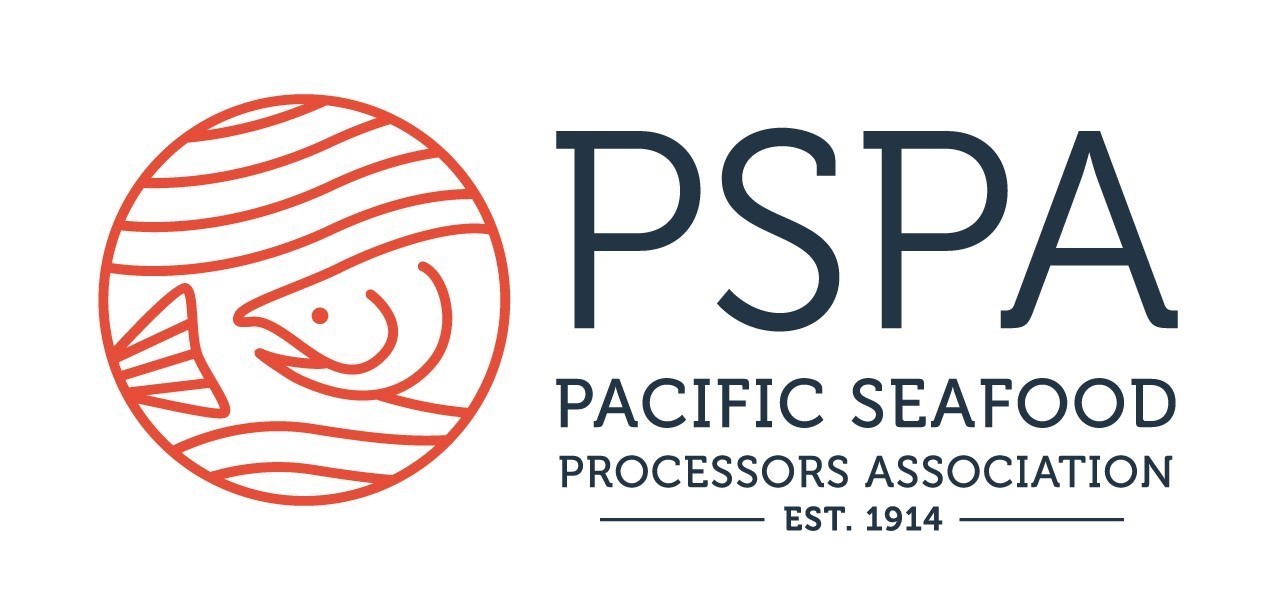2020 State of the Science Symposium
The Seafood Nutrition Partnership’s Scientific Nutrition Advisory Council is delighted to host the 4th annual State of the Science Symposium on Thursday, September 17, 2020.
This annual event provides a forum for global leaders in human nutrition to outline the latest consensus on all aspects of seafood nutrition.
This program produced by the SNP Scientific Nutrition Advisory Council brings together experts in this space. Educational presentations will merge technical analysis and accessible information for non-specialists.
Agenda
Introduction to the 4th Annual State of the Science Symposium
 Linda Cornish is President of the Seafood Nutrition Partnership, a non-profit organization inspiring a healthier America through a balanced diet that includes seafood.
Linda Cornish is President of the Seafood Nutrition Partnership, a non-profit organization inspiring a healthier America through a balanced diet that includes seafood.
She is a mission driven executive who is working on addressing America’s public health crisis by empowering healthier food consumption. Linda was instrumental in the formation of Seafood Nutrition Partnership and led the launch of a public health campaign in October 2015 during National Seafood Month to help Americans find a path to wellness through healthy eating and seafood nutrition.
Linda has presented to many groups to raise awareness and urgency about the need for the general public to eat more seafood, including Aquaculture America, Aquarium of the Pacific, Bay of Fundy Seafood Forum, Boston Museum of Science, Canadian Aquaculture Industry Alliance, Clinton Global Initiative, Global Aquaculture Alliance – GOAL Conference, Groundfish Forum, NFI Global Seafood Marketing Conference, Seafood Expo North America, Sustainable Seafood Week NYC, World Seafood Congress, and Women of Seafood.
She has held leadership and management positions with Arthur Andersen, Hitachi Business Consulting, Harrah’s Entertainment, Greater Memphis Chamber of Commerce, and Bill of Rights Institute. She is co-founder and past chairman for the Memphis Farmers Market and served on the board of Greening Greater Memphis. Linda is a graduate of the University of California at Riverside with a Bachelor’s degree in Business Administration and holds a Master of Business Administration degree from the University of California at Los Angeles. She lives in Arlington, Virginia with her husband and two Sealyham Terriers.
Seafood for Human Health
Update on Dietary Guidelines Advisory Committee 2020 Scientific Report and Implications Dietary Guidelines for Americans for Seafood Recommendations
 Tom Brenna is professor of pediatrics, of chemistry, and of nutrition at the Dell Medical School and the College of Natural Sciences at the University of Texas at Austin, and recently Professor Emeritus at Cornell University. His group pursues basic and translational research into the chemical, biochemical, metabolic, genetic and ecological aspects of fatty acids. He has served on numerous international policy groups, most recently the 2015 Dietary Guidelines Advisory Committee.
Tom Brenna is professor of pediatrics, of chemistry, and of nutrition at the Dell Medical School and the College of Natural Sciences at the University of Texas at Austin, and recently Professor Emeritus at Cornell University. His group pursues basic and translational research into the chemical, biochemical, metabolic, genetic and ecological aspects of fatty acids. He has served on numerous international policy groups, most recently the 2015 Dietary Guidelines Advisory Committee.
The American Society for Nutrition awarded him the 2017 Osborne and Mendel Award for outstanding contributions to basic research in nutrition; with ASN’s Robert Herman Award for advancement of clinical nutrition (2013), he is only the fourth person to be honored with both awards.
He is a member of graduate fields in Cornell’s four large colleges: Nutrition (CHE and CALS), Food Science and Technology (CALS); Chemistry and Chemical Biology (Arts); Geological Sciences (Engineering and CALS), and in a long-standing collaboration with a prominent former member of Cornell’s College of Veterinary Medicine. His research group has been funded by institutes/centers at the NIH (NIGMS, NEI, NICHD, NCRR) and has included at least one active R01 continuously since 1992. These grants have supported fundamental work in the nutrition of polyunsaturated fatty acids, and development of advanced mass spectrometry instrumentation and techniques.
His current research activities are concerned with three areas: requirements for polyunsaturated and branched chain fatty acids especially in the perinatal period, development of advanced analytical chemical instrumentation particularly mass spectrometry for biomedical applications, and development of high precision isotope ratio mass spectrometry for anti-doping applications. Tom’s polyunsaturated fatty acid work focuses on factors that influence demand for omega-3 and omega-6 fatty acids, and most of his studies are conducted in animals. His instrumentation work is aimed at development of high precision isotope ratio mass spectrometry for tracer applications and for detection of natural physiological isotopic fractionation. Studies of omega-3 fatty acids are often based on stable isotope tracers and also employ molecular and genetic techniques. His team is focused on brain and associated organ development, and on branched chain fatty acids in human nutrition.
Translating DGA into action for USDA feeding programs within FNS
 Shelley Maniscalco, RDN, has been practicing nutrition and dietetics in the Washington, DC area for more than two decades. With a specialty in science- and consumer-based communication at both the national and individual levels, it is Shelley’s mission to support Americans in making personalized and realistic changes that are intuitive and sustainable for them so that behaviors confer long-lasting health and wellness benefits.
Shelley Maniscalco, RDN, has been practicing nutrition and dietetics in the Washington, DC area for more than two decades. With a specialty in science- and consumer-based communication at both the national and individual levels, it is Shelley’s mission to support Americans in making personalized and realistic changes that are intuitive and sustainable for them so that behaviors confer long-lasting health and wellness benefits.
Shelley began her career in DC at the National Academies’ Institute of Medicine supporting key Food and Nutrition Board projects such as the Dietary Reference Intakes. She spent 8 years at the International Food Information Council conducting consumer research that informed initiatives related to weight management, dietary guidance, dietary fats, carbohydrates and sugars, and sodium. Shelley transitioned to the USDA Center for Nutrition Policy where she contributed to the 2010 Dietary Guidelines for Americans and development of MyPlate. While at CNPP, Shelley created and grew the USDA/CNPP Nutrition Communicators Network and led the nationwide MyPlate campaign to help the public implement the Dietary Guidelines for Americans 2015-2020.
Currently, Shelley is the Founder and CEO of Nutrition On Demand where she consults with national organizations, with the support of a multi-disciplinary team, on strategy, science, policy, and communications.
Shelley’s educational background includes a Bachelor’s Degree in Nutrition Science from the Pennsylvania State University and a Master’s Degree in Public Health from the University of Massachusetts, Amherst. She is also a Registered Dietitian Nutritionist with the Academy of Nutrition and Dietetics.
COVID-19: Staying Healthy & Immune Boosting Foods
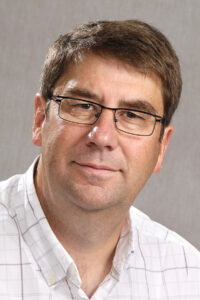 Philip Calder is Head of the School of Human Development and Health and Professor of Nutritional Immunology in the Faculty of Medicine at the University of Southampton, UK. He is an internationally recognized researcher on the metabolism and functionality of fatty acids, with an emphasis on the roles of omega-3 fatty acids, and on the influence of diet and nutrients on the immune and inflammatory responses. His research addresses both life course and translational considerations, and includes research in cell and animal models and in healthy humans and patients. He has received many awards and prizes for his work including the Ralph Holman Lifetime Achievement Award from the American Oil Chemists’ Society (2015), the prestigious Danone International Prize for Nutrition (2016) and the DSM Lifetime Achievement Prize in Human Nutrition (2017). Professor Calder was President of the International Society for the Study of Fatty Acids and Lipids (2009-2012), Chair of the Scientific Committee of the European Society for Clinical Nutrition and Metabolism (2012-2016) and President of the Nutrition Society (2016-2019). He is currently President of the Federation of European Nutrition Societies (2019-2023). He was previously Editor-in-Chief of the British Journal of Nutrition and is currently an Associate Editor of several journals including Journal of Nutrition and Clinical Science. Professor Calder has published over 700 scientific articles (excluding abstracts) and according to ISI Web of Science his work has been cited over 36,500 times with an h-index of 105 (data from Google Scholar: over 66,000 citations; h-index 134).
Philip Calder is Head of the School of Human Development and Health and Professor of Nutritional Immunology in the Faculty of Medicine at the University of Southampton, UK. He is an internationally recognized researcher on the metabolism and functionality of fatty acids, with an emphasis on the roles of omega-3 fatty acids, and on the influence of diet and nutrients on the immune and inflammatory responses. His research addresses both life course and translational considerations, and includes research in cell and animal models and in healthy humans and patients. He has received many awards and prizes for his work including the Ralph Holman Lifetime Achievement Award from the American Oil Chemists’ Society (2015), the prestigious Danone International Prize for Nutrition (2016) and the DSM Lifetime Achievement Prize in Human Nutrition (2017). Professor Calder was President of the International Society for the Study of Fatty Acids and Lipids (2009-2012), Chair of the Scientific Committee of the European Society for Clinical Nutrition and Metabolism (2012-2016) and President of the Nutrition Society (2016-2019). He is currently President of the Federation of European Nutrition Societies (2019-2023). He was previously Editor-in-Chief of the British Journal of Nutrition and is currently an Associate Editor of several journals including Journal of Nutrition and Clinical Science. Professor Calder has published over 700 scientific articles (excluding abstracts) and according to ISI Web of Science his work has been cited over 36,500 times with an h-index of 105 (data from Google Scholar: over 66,000 citations; h-index 134).
The Omega-3 Index: From Biomarker to Risk Factor
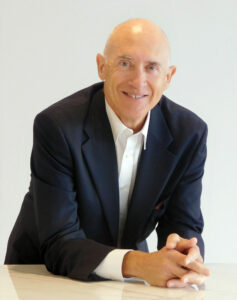 Dr. William Harris, PHD – Professor of Medicine, Sanford School of Medicine, University of South Dakota, President and CEO of OmegaQuant, member of SNP Scientific and Nutrition Advisory Council
Dr. William Harris, PHD – Professor of Medicine, Sanford School of Medicine, University of South Dakota, President and CEO of OmegaQuant, member of SNP Scientific and Nutrition Advisory Council
Dr. William Harris is an internationally recognized expert on omega-3 fatty acids and how they can benefit patients with heart disease. Bill’s interest in omega-3 fatty acids began with his postdoctoral work when he published his first study on the effects of salmon oil on serum lipids in humans (1980). Since that time he has been the recipient of five NIH grants for studies on the effects of omega-3 fatty acids (EPA and DHA) on human health. He has over 190 publications relating to omega-3 fatty acids in medical literature and was an author on two American Heart Association scientific statements on fatty acids: “Fish Consumption, Fish Oil, Omega-3 Fatty Acids and Cardiovascular Disease” (2002), and “Omega-6 Fatty Acids and Risk for Cardiovascular Disease” (2009) both published in the Circulation Journal of the American Heart Association.
Bill obtained his PhD in Human Nutrition from the University of Minnesota, and did post-doctoral fellowships in Clinical Nutrition and Lipid Metabolism with Dr. Bill Connor at the Oregon Health Sciences University.
Break with Cooking Demo, Networking, Visiting Expo Booths
 Shamera Robinson serves as the Director of Nutrition at the American Diabetes Association. Prior to her current role, Shamera used a patient-centered approach to counsel, educate, and deliver medical nutrition therapy as an outpatient dietitian. She assisted with the development of ongoing evidence-based nutrition education programs and resources for patients, families, and care providers – accounting for cultural, religious, physical and age-related needs. Her experiences in the clinical setting allow her to bring a fresh perspective and an unwavering passion to improve the lives of those affected by diabetes.
Shamera Robinson serves as the Director of Nutrition at the American Diabetes Association. Prior to her current role, Shamera used a patient-centered approach to counsel, educate, and deliver medical nutrition therapy as an outpatient dietitian. She assisted with the development of ongoing evidence-based nutrition education programs and resources for patients, families, and care providers – accounting for cultural, religious, physical and age-related needs. Her experiences in the clinical setting allow her to bring a fresh perspective and an unwavering passion to improve the lives of those affected by diabetes.
The Outlook for Sustainable Seafood: Pathways Toward a Stronger and More Resilient Seafood Sector
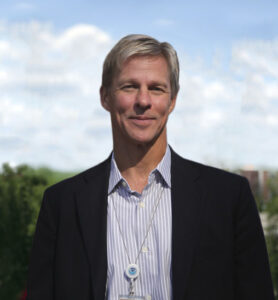 Dr. Paul Doremus serves as the Chief Operating Officer for NOAA Fisheries, responsible for the agency’s strategy and performance, budget and finance, policy and communications, IT and facilities, and human resources. He oversees Fisheries’ Office of International Affairs and Seafood Inspection, and the Office of Law Enforcement.
Dr. Paul Doremus serves as the Chief Operating Officer for NOAA Fisheries, responsible for the agency’s strategy and performance, budget and finance, policy and communications, IT and facilities, and human resources. He oversees Fisheries’ Office of International Affairs and Seafood Inspection, and the Office of Law Enforcement.
He is also leading NOAA’s strategic initiative to expand US seafood production, primarily through aquaculture. In response to rising global demand for seafood and limited supplies from wild capture fisheries, he is working across government, industry, and the nonprofit sectors to provide a predictable regulatory environment and a robust research infrastructure for US-based aquaculture.
Dr. Doremus received his Ph.D. in Government from Cornell University, and has over twenty years of experience in Federal science, technology, and environmental policy and management.
Seafood for Planetary Health
The Future of US Seafood in a Rapidly Changing World
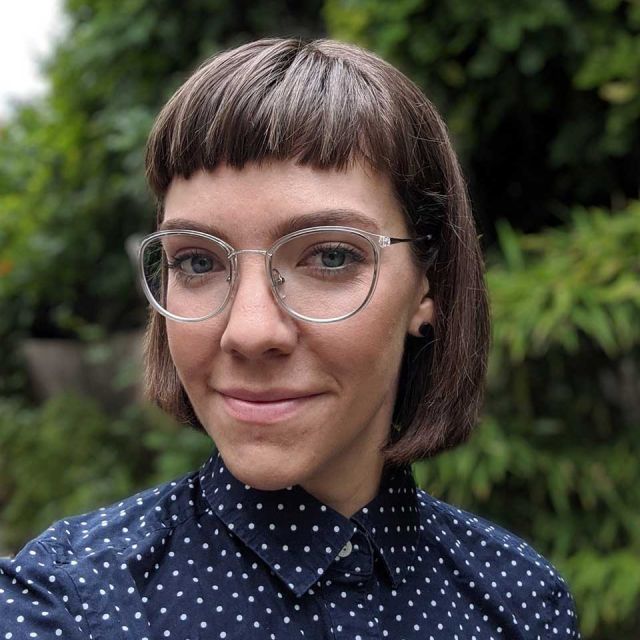 Dr. Halley Froehlich, Assistant Professor, Ecology, Evolution, and Marine Biology, University of California, Santa Barbara
Dr. Halley Froehlich, Assistant Professor, Ecology, Evolution, and Marine Biology, University of California, Santa Barbara
Dr. Froehlich earned her B.Sc. in Animal Biology from the University of California, Davis and her Ph.D. in Marine Ecology & Fishery Sciences from the University of Washington, where she took an interdisciplinary approach studying the impacts of anthropogenic stressors, such as hypoxia, on exploited marine ecosystems and species. As a Postdoctoral Scholar at the National Center for Ecological Analysis and Synthesis, she studied the potential of sustainable open-ocean aquaculture. Dr. Froehlich started her Interdepartmental Graduate Program in Marine Science (IGPMS) appointment in 2019, joining the departments of Ecology, Evolution, & Marine Biology and Environmental Studies. She is currently a co-PI on several cross-departmental, national, and international seafood and aquaculture projects.
Research
Sustainability of seafood and marine ecosystems are increasingly threatened by multiple stressors that act and interact at different scales. Globally, aquaculture (i.e., aquatic farming) is now a dominant form of seafood production, but there are major scientific gaps in understanding the consequences of aquatic farming in a larger, ecological food-system context, especially under a changing climate. In the Froehlich Lab, our research aims to tackle these problems by understanding the links between patterns and process at the species to global scale, using field- and lab-based physiology and behavior analyses, combined with social and ecological modelling and data science. Currently, my lab is exploring interactions and impacts of aquaculture, wild fisheries, and climate change.
Break and Stretch
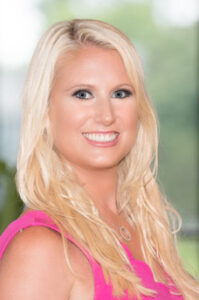 Mandy Enright, MS, RDN, RYT, dietitian, yoga and fitness instructor
Mandy Enright, MS, RDN, RYT, dietitian, yoga and fitness instructor
Mandy Enright, MS, RDN, RYT, is a registered dietitian, yoga, and fitness instructor based at the Jersey Shore. She specializes in corporate wellness, nutrition communications, and helping provide simple, actionable mealtime solutions from planning to preparation. A prior career as an advertising executive fuels her mission for promoting self-care to busy professionals. Mandy is known as the FOOD + MOVEMENT® Dietitian for her fun and flexible approach to maximize body and mind performance through lifestyle and mindset changes that integrate rather than deviate into our busy daily lives. Learn more about Mandy at www.mandyenright.com.
Seafood for Planetary Health and Economic Health: A Panel Discussion Moderated by Ned Daly
 Dr. Paul Doremus serves as the Chief Operating Officer for NOAA Fisheries, responsible for the agency’s strategy and performance, budget and finance, policy and communications, IT and facilities, and human resources. He oversees Fisheries’ Office of International Affairs and Seafood Inspection, and the Office of Law Enforcement.
Dr. Paul Doremus serves as the Chief Operating Officer for NOAA Fisheries, responsible for the agency’s strategy and performance, budget and finance, policy and communications, IT and facilities, and human resources. He oversees Fisheries’ Office of International Affairs and Seafood Inspection, and the Office of Law Enforcement.
He is also leading NOAA’s strategic initiative to expand US seafood production, primarily through aquaculture. In response to rising global demand for seafood and limited supplies from wild capture fisheries, he is working across government, industry, and the nonprofit sectors to provide a predictable regulatory environment and a robust research infrastructure for US-based aquaculture.
Dr. Doremus received his Ph.D. in Government from Cornell University, and has over twenty years of experience in Federal science, technology, and environmental policy and management.
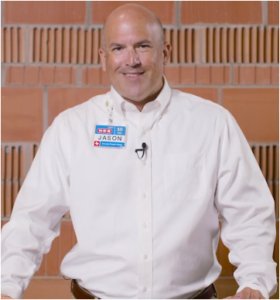 Jason Driskill is currently Director of Seafood for Texas-based retailer H-E-B with responsibilities over procurement, sales, merchandising, marketing and sustainability for fresh/frozen seafood and sushi across all Texas stores. H-E-B is a regional retailer established in 1905 with a total store count that spans over 400 locations in Texas and Monterrey, Mexico. In 2018, H-E-B ranked 12th nationally in sales for U.S. private companies, with over $26 billion. In his time at H-E-B, Jason has focused on strengthening the company’s seafood sourcing programs and industry partnerships while collaborating with outside groups like Environmental Defense Fund (EDF) and Global Aquaculture Alliance (GAA) to ensure that sourcing decisions consider the environmental and social track records of wild and aquaculture fisheries. He has also worked to bring stories of the seafood industry to Texas customers from various parts of the U.S., such as Alaska’s Bering Sea, the Pacific Northwest, and local waters of the Gulf of Mexico.
Jason Driskill is currently Director of Seafood for Texas-based retailer H-E-B with responsibilities over procurement, sales, merchandising, marketing and sustainability for fresh/frozen seafood and sushi across all Texas stores. H-E-B is a regional retailer established in 1905 with a total store count that spans over 400 locations in Texas and Monterrey, Mexico. In 2018, H-E-B ranked 12th nationally in sales for U.S. private companies, with over $26 billion. In his time at H-E-B, Jason has focused on strengthening the company’s seafood sourcing programs and industry partnerships while collaborating with outside groups like Environmental Defense Fund (EDF) and Global Aquaculture Alliance (GAA) to ensure that sourcing decisions consider the environmental and social track records of wild and aquaculture fisheries. He has also worked to bring stories of the seafood industry to Texas customers from various parts of the U.S., such as Alaska’s Bering Sea, the Pacific Northwest, and local waters of the Gulf of Mexico.
Jason’s 25 years in the seafood industry includes an extensive background in distribution, processing and retail. Prior to joining H-E-B in 2009, he oversaw the Texas operations for Pacific Seafood, bringing his experience with fresh/frozen seafood production, purchasing, and warehousing to the organization. Jason is passionate about educating people on the ease of cooking seafood and the many benefits that it provides, all with the goal of creating a more informed, confident, and healthy consumer. His travels in the seafood industry have taken him to numerous fisheries and seafood facilities across the United States, as well as Central/South America, China, Japan and Southeast Asia.
Current and past responsibilities in the seafood industry have included: strategic sales and business development, people development, operations management, product innovation, marketing, corporate quality and sustainability policies, private label development, working with NGO’s & fishery scientists, and developing transparent supply chain programs across the globe.
Jason and his wife of 23 years, Tess, live in San Antonio, TX and enjoy travelling, cooking, and spending time with their children.
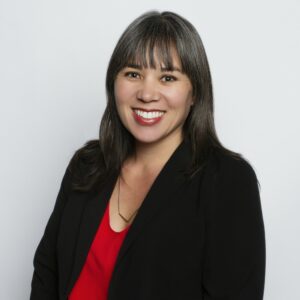 Teresa Ish, Program Officer, Environment Program – Oceans Initiative, Walton Family Foundation
Teresa Ish, Program Officer, Environment Program – Oceans Initiative, Walton Family Foundation
Teresa manages grants in the Environment Program that leverage the power of the supply chain to advocate for more sustainable fisheries. Before joining the foundation, Teresa was the seafood project manager for the Corporate Partnerships Program at Environmental Defense Fund, where she worked with leading seafood buyers to develop and implement sustainable seafood purchasing policies. During her tenure at EDF, she played an instrumental role in merging the organization’s seafood buyer work and its extensive experience in the fishery policy arena. Prior to joining EDF, she co- founded FishWise and served as its director of science.
Teresa holds a bachelor’s degree in environmental studies and biology and a Master of Science in oceans science from the University of California Santa Cruz.
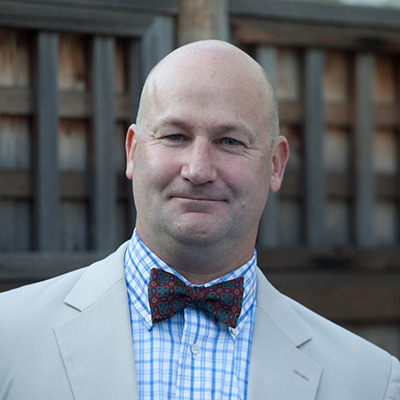 Ned Daly is a sustainability strategist with Diversified Communications. He has worked on sustainable markets in a variety of resources for 25 years. Ned worked in seafood for the last decade with SeaWeb. Previously he was director of RugMark International (now GoodWeave), a certification program for child-labor-free rugs coming from Southeast Asia. He also served as chief operating officer for the Forest Stewardship Council in the United States, managing relationships with industry leaders and a diversity of key stakeholders including conservation nongovernment organizations, policymakers and industry trade associations. Ned has also worked on sustainable markets in the agricultural sector and the relationship between resource extraction and ecosystem health. He lives in Alfred, Maine.
Ned Daly is a sustainability strategist with Diversified Communications. He has worked on sustainable markets in a variety of resources for 25 years. Ned worked in seafood for the last decade with SeaWeb. Previously he was director of RugMark International (now GoodWeave), a certification program for child-labor-free rugs coming from Southeast Asia. He also served as chief operating officer for the Forest Stewardship Council in the United States, managing relationships with industry leaders and a diversity of key stakeholders including conservation nongovernment organizations, policymakers and industry trade associations. Ned has also worked on sustainable markets in the agricultural sector and the relationship between resource extraction and ecosystem health. He lives in Alfred, Maine.
Eat Seafood, America: A Rapid-Response to Help the Seafood Communities
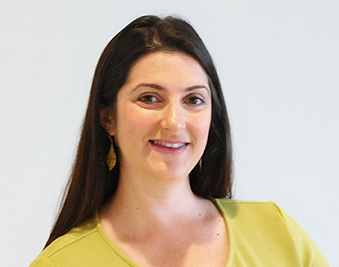 Andrea Albersheim is Director of Communication for the Seafood Nutrition Partnership, where she leads the public education campaign and partnership outreach efforts.
Andrea Albersheim is Director of Communication for the Seafood Nutrition Partnership, where she leads the public education campaign and partnership outreach efforts.
Andrea brings more than a decade of communications experience, focusing on food, nutrition and consumer issues. She is dedicated to not only helping people understand what eating “healthy” means, but to make sure the supply chain is available to make those healthy decisions easy for consumers.
Previously, she led communications and reputation management efforts at the Soyfoods Association of North America and was the senior digital project manager at Weber Shandwick, where she worked on building web and social strategies for healthcare, nutrition, public policy, government and advocacy organizations. Prior to that, Andrea was a features journalist and editor for eight years in the D.C.-metro area, where she was a restaurant reviewer and got to try hundreds of delicious dishes!
Andrea currently serves as an advisory member to the FMI Seafood Strategy Leadership Council. She holds a Masters in Business Administration from the University of Maryland, where she also attended undergraduate studies in Journalism and Social Psychology.


